Related Research Articles

Thomas Babington Macaulay, 1st Baron Macaulay, was a British historian and Whig politician, who served as the Secretary at War between 1839 and 1841, and as the Paymaster-General between 1846 and 1848.
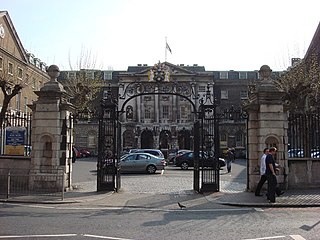
Guy's Hospital is an NHS hospital in the borough of Southwark in central London. It is part of Guy's and St Thomas' NHS Foundation Trust and one of the institutions that comprise the King's Health Partners, an academic health science centre.

Gervase Babington (1549/1550–1610) was an English churchman, serving as the Bishop of Llandaff (1591–1594), Bishop of Exeter (1594–1597) and Bishop of Worcester in 1597–1610. He was a member of the Babington family and held influential offices at the same time as his cousin Anthony Babington was executed for treason against Elizabeth I as part of the Babington Plot.
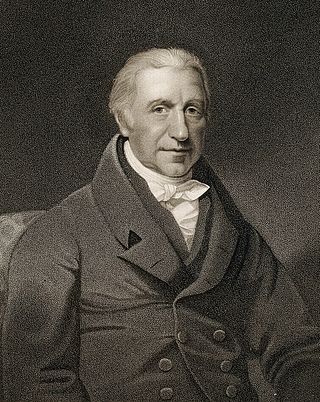
William Babington FRS FGS was an Anglo-Irish physician and mineralogist.

Thomas Babington of Rothley Temple was an English philanthropist and politician. He was a member of the Clapham Sect, alongside more famous abolitionists such as William Wilberforce and Hannah More. An active anti-slavery campaigner, he had reservations about the participation of women associations in the movement.

Tales of St. Austin's is a collection of short stories and essays, all with a school theme, by P. G. Wodehouse. It was first published on 10 November 1903 by Adam & Charles Black, London, all except one item having previously appeared in the schoolboy magazines, The Captain and Public School Magazine.

Charles Cardale Babington was an English botanist and archaeologist. He was elected a Fellow of the Royal Society in 1851. Babington was the son of Joseph Babington and Cathérine née Whitter, and a nephew of Thomas Babington Macaulay. He was educated at Charterhouse and St John's College, Cambridge, obtaining his Bachelor of Arts in 1830 and his Master of Arts in 1833. He overlapped at Cambridge with Charles Darwin, and in 1829 they argued over who should have the pick of beetle specimens from a local dealer. He obtained the chair of botany at the University of Cambridge in 1861 and wrote several papers on insects. He married Anna Maria Walker on 3 April 1866.

Benjamin Guy Babington was an English physician and epidemiologist.
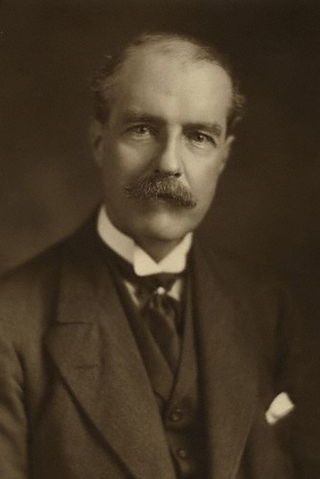
Sir Henry Babington Smith was a senior British civil servant, who served in a wide range of posts overseas, mostly financial, before becoming a director of the Bank of England. He was related to the Babington family through his maternal grandmother Mary, a daughter of Thomas Babington, and his children took the double surname Babington Smith.
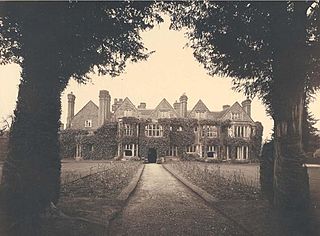
Zachary Babington was an English barrister who served as High Sheriff of Staffordshire in 1713 and 1724.
Robert John Babington, DSC, QC was an Ulster Unionist Party politician, who served as the member of the House of Commons of Northern Ireland for North Down from 1969 to 1972, and a county court judge. He was born in Dublin.
The Rt Rev. BrutusBabington (1558-1611) was an Englishman who became the Church of Ireland Bishop of Derry.
Richard Longworth was an English churchman and academic, Master of St John's College, Cambridge and Dean of Chester.

Babington House is a Grade II* listed manor house, located in the village of Babington, between Radstock and Frome, in the county of Somerset, England.
Francis Babington D.D. was an English divine and an academic administrator at the University of Oxford. He was elected Master (head) of Balliol College, Oxford on 2 September 1559, a post he held until he resigned the following year on 27 October 1560. Babington was Vice-Chancellor of Oxford University from 1560 to 1562. He was also Rector of Lincoln College, Oxford, from 1560 until he resigned in 1563.
Charles Richard Elrington (1787–1850) was a Church of Ireland cleric and academic, regius professor of divinity in the Trinity College Dublin.
Lieutenant General Sir James Melville Babington was a British Army officer and a renowned leader of cavalry, making a name for himself for his actions in the Second Boer War. He was Commander of the New Zealand Defence Force and one of the most respected British generals in the First World War, in command of the 23rd Division. After the war he was Commander of the British Forces in Italy.
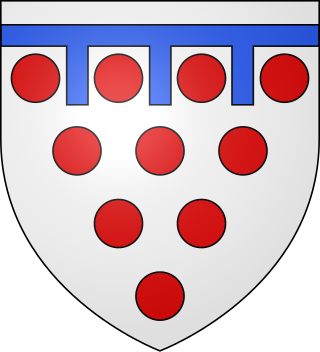
Babington is the name of an Anglo-Irish and English gentry family. The Anglo-Irish branch of the family is still extant today.
Richard Hamilton Babington was Archdeacon of Exeter from 1958 to 1970; and Treasurer of Exeter Cathedral from 1962 to 1970.
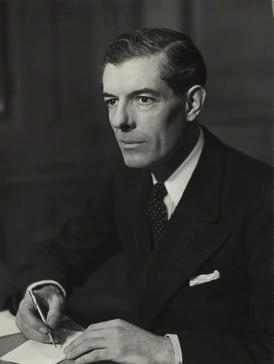
Brigadier Michael James Babington Smith, known in London as MJBS, was a British banker, sportsman and soldier from the Babington family. During the Second World War, he served under General Dwight D. Eisenhower as Director of Finance at SHAEF from 1943 to 1945. Following the war, he was a director of the Bank of England for two decades. He served as treasurer of the National Art Collections Fund and was twice High Sheriff of the County of London.
References
- ↑ "Babington, Ven. Richard". Who Was Who. A & C Black / Bloomsbury Publishing. 1920–2016. doi:10.1093/ww/9780199540884.013.U161636 . Retrieved 3 March 2020.
- ↑ The Very Rev. Richard Babington. The Times (London, England), Saturday, 13 December 1952; pg. 8; Issue 52494
- ↑ Crockford's Clerical Directory 1975-76 London: Oxford University Press, 1976 ISBN 0-19-200008-X